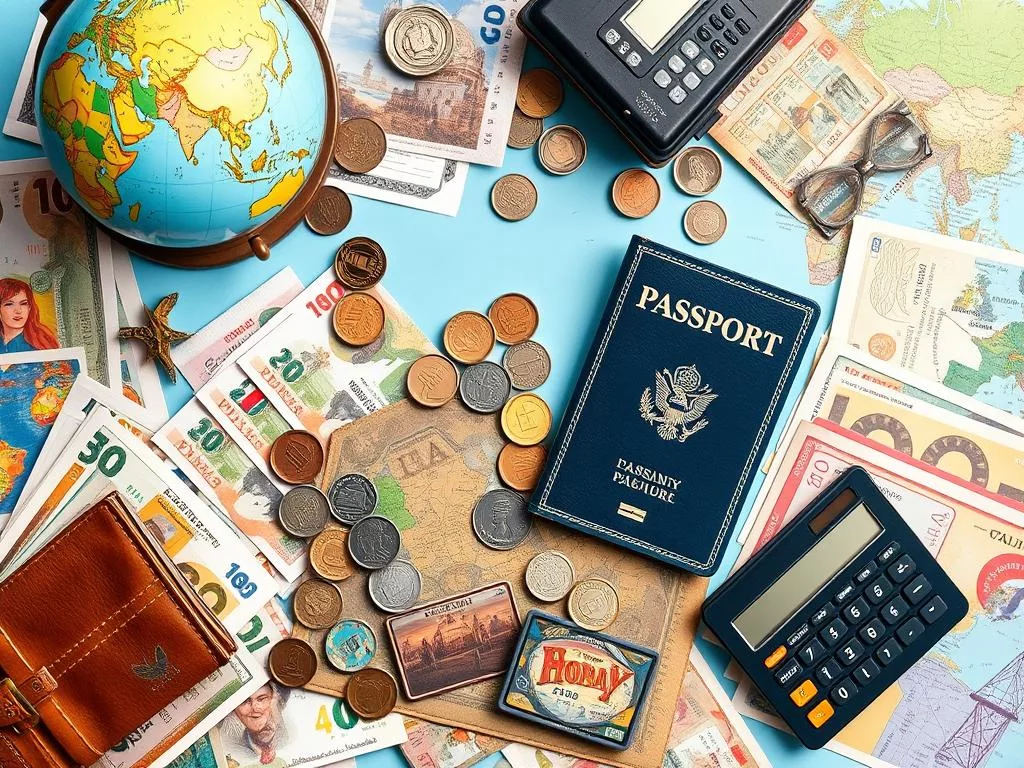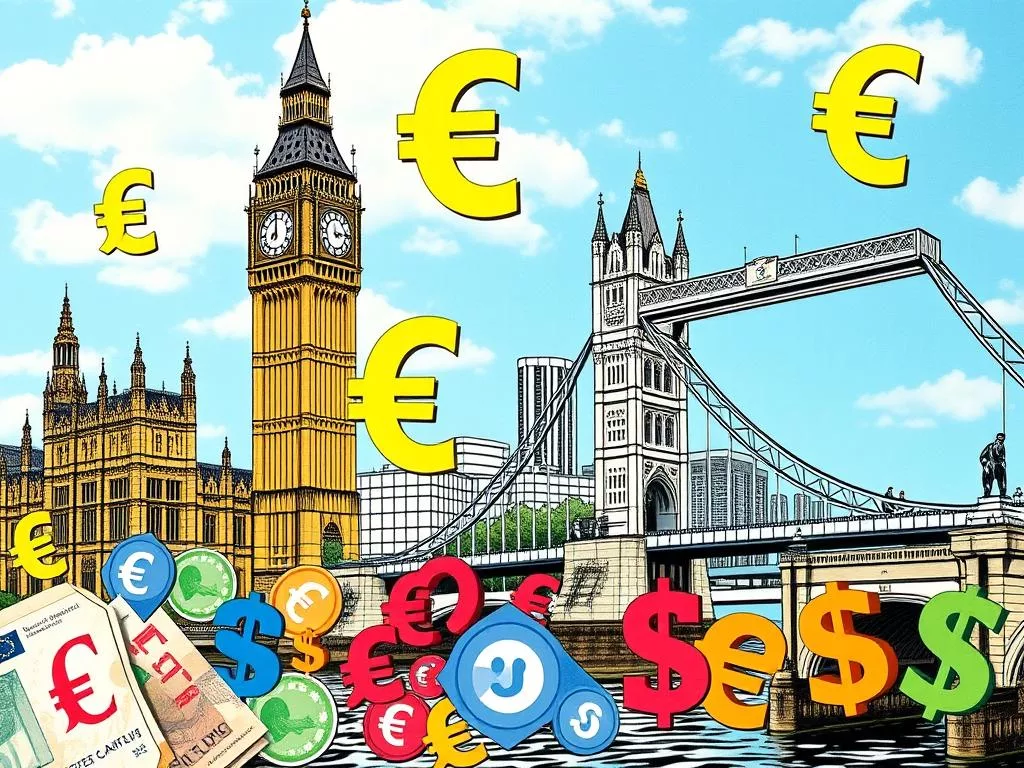Planning your next trip abroad? Knowing about UK travel money options can make your journey better. There are many currency exchange providers out there. It’s key to do a currency exchange comparison to get the best rates and avoid extra fees.
Travel money choices have grown, with options like prepaid cards and digital banks. These offer benefits like cheaper exchange rates and no fees for spending abroad. Prepaid travel cards are a hit because they often have better rates than banks.
It’s important to plan your travel money exchange ahead. Using comparison websites can help find the best rates. Researching each option’s pros and cons is essential. This way, you’ll choose the travel card that fits your needs best.
Understanding Your Travel Money Options
When you travel abroad, knowing your money options is key. You can pick from cash, travel debit cards, travel credit cards, prepaid cards, or cash alternatives. Cash is widely accepted but comes with risks like loss or theft. It’s wise to carry $100 to $200 in cash for emergencies.
Travel debit cards offer easy access to money abroad. Yet, they often come with foreign transaction fees of 1% to 3%. Also, cash withdrawals at ATMs can cost $2 to $5. Travel credit cards, on the other hand, offer strong purchase protection but might have cash advance fees.
Prepaid travel cards are another option. They let you load a set amount, helping you avoid overspending. They score 7.5 out of 10 for their effectiveness and cost. It’s smart to compare different prepaid cards to save money.
Digital banking services like Starling and Revolut offer new ways to manage travel money. They provide easy access to funds with low fees. As more places favor cash alternatives, these services are very useful.
Choosing the right travel money solution requires careful thought. Look at fees for currency conversion, which are usually 1% to 3%. International transaction fees from Visa or MasterCard are often under 1%. Some banks might even waive these fees for certain customers. Using online comparisons can help you make a better choice.

| Travel Money Option | Ease of Use Rating | Cost-Effectiveness Rating |
|---|---|---|
| Cash | N/A | N/A |
| Travel Debit Cards | 6/10 | 6/10 |
| Travel Credit Cards | 4.5/10 | N/A |
| Prepaid Travel Cards | N/A | 7.5/10 |
| Traveller’s Cheques | N/A | 4.5/10 |
| Third-Party Transfers | N/A | 9/10 |
Guide to Compare Travel Money Options in the UK
When comparing travel money in the UK, it’s key to know how fees and exchange rates affect your budget. Making smart choices can save you a lot. It’s important to weigh the pros and cons of each option.
For example, spending €1,000 with a top card can cost about £818. Getting cash from a bureau costs £821. But using M&S for exchange costs £829. This shows picking the right method can save you money.

Debit cards from TSB, Bank of Scotland, Lloyds Bank, and Halifax charge 2.99% for euro transactions in the EEA. ATM fees range from £1.50 to 50p. It’s vital to choose the best option by checking for ‘non-sterling transaction fees’ to avoid extra costs.
Prepaid travel cards, like the Post Office Travel Money Card, let you load different currencies without extra charges abroad. They offer control and better planning than cash or debit cards, which often have hidden fees.
To save on your travel budget, order foreign currency online before you go. This way, you get better rates than at airports. Using comparison tools helps find the best travel money options. With careful planning and understanding exchange rates, you can save a lot while traveling.
For more on managing foreign currency accounts, see this resource.
The Advantages of Prepaid Travel Cards
Prepaid travel cards have many benefits of prepaid cards. They are great for travelers who want to manage their money abroad. By adding money before you go, you can better control your spending.
This way, you avoid unexpected costs when you get back. You also know exactly how much money you have left for your trip.
Another big plus is the prepaid travel cards advantages like better exchange rates. Unlike banks, which can charge a lot for foreign exchange, prepaid cards often have better rates. You can load money in over 50 currencies, making them useful for many places.
But, it’s good to know about fees. There might be costs for applying, withdrawing money, or if you don’t use the card for a year. Also, there could be limits on how much you can add or take out. Even so, prepaid cards are widely accepted. Just remember to have other ways to pay, like at gas stations or toll booths.
Knowing these details helps you make the most of prepaid travel cards. They offer flexibility and security for your travels.

